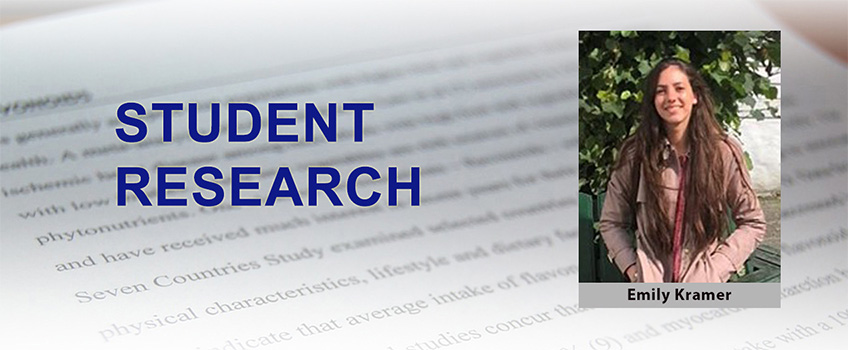Student Research Shows Increase in N.J. Diversity

Galloway, N.J. – New Jersey’s population has become more diverse over the last 20 years, but that diversity is not spread evenly among the 21 counties according to a student research paper published today by the William J. Hughes Center for Public Policy at Stockton University.
The paper by Stockton senior Emily Kramer used Census data to show the level of diversity found in the 2020 Census for each county and how the Hispanic/Latino and the non-Hispanic White, Black and Asian populations have changed in each group’s share of the county population.
Kramer’s paper was published on the Hughes Center’s website at stockton.edu/hughescenter. The report links to an interactive map that details each county’s diversity ratings.
“This research paints a demographic portrait of who we are as a state in terms of the ethnic and racial makeup of our counties,” said John Froonjian, director of the Hughes Center. “It also shows how different segments of our society represent larger or smaller percentages of our population, and where that growth is happening fastest.”
Kramer created a rating system to measure levels of diversity that can be compared county to county. The diversity index was based on the percentages of the county populations each group represented in 2020.
- The most diverse counties in New Jersey according to the diversity index are Cumberland, Essex, Hudson, Middlesex, Passaic, Somerset, and Union counties
- Counties rated moderate in diversity are Atlantic, Bergen, Burlington, Camden, Mercer, and Morris counties
- The least diverse counties in New Jersey according to the index are Cape May, Gloucester, Hunterdon, Monmouth, Ocean, Salem, Sussex, and Warren counties
The research documented the level of growth or decline of non-Hispanic Whites, Blacks, Asians and those of Hispanic/Latino origin based on data from the U.S. Census.
The New Jersey counties where people of Hispanic origin grew as a percentage of the population by more than 10 percentage points from 2000 to 2020 are:
- Bergen (11%), Cumberland (15%), Mercer (12%), Passaic (13%), Union (14%).
Asians grew as a percentage of the population by more than 10 percentage points during that time in:
- Hudson (19%), Mercer (11%), Middlesex (20%), Somerset (15%) counties.
Black residents grew as a percentage of county populations at a lower rate than did Asian and Hispanic groups. In Union County, the black population over 20 years grew as a piece of the population pie by 10 percentage points. Growth in all other counties was in single digits.
Whites declined as a percentage of the population in 13 of 21 New Jersey counties.
“It is important to analyze new (population) trends that have occurred,” Kramer concluded in her paper. “In order to effectively care for constituents, state representatives and policymakers need to know the characteristics of the communities that they serve.”
Kramer is a double major at Stockton in political science with a concentration in international affairs and language and culture studies. she is also pursuing a minor in global studies. She is president of Stockton Amnesty International and vice president of Stockton Model United Nations. Kramer will graduate in spring 2023 and hopes to attend law school to become an immigration lawyer.
View a video on the Hughes Center website of Emily Kramer discussing her research.
About the Hughes Center
The William J. Hughes Center for Public Policy (www.stockton.edu/hughescenter) at Stockton University serves as a catalyst for research, analysis and innovative policy solutions on the economic, social and cultural issues facing New Jersey, and promotes the civic life of New Jersey through engagement, education and research. The center is named for the late William J. Hughes, whose distinguished career includes service in the U.S. House of Representatives, Ambassador to Panama and as a Distinguished Visiting Professor at Stockton. The Hughes Center can be found on YouTube, and can be followed on Facebook @StocktonHughesCenter, Twitter @hughescenter and Instagram @ stockton_hughes_center


